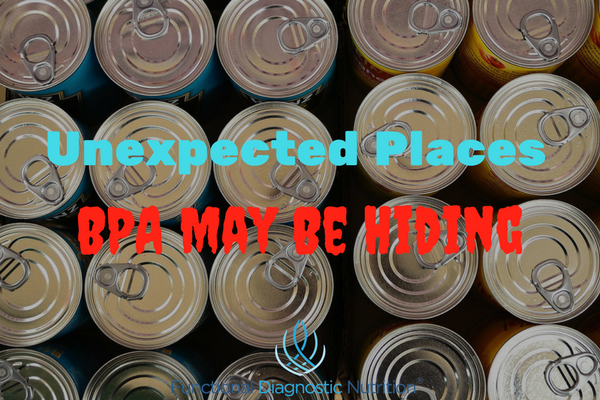Bisphenol A, better known as BPA is an industrial chemical that has been used for more than fifty years. It is primarily used in the making of polycarbonate plastics and epoxy resins. It is used in such a large number of products that most human beings are exposed to it on a regular basis.
The Dangers of BPA
Although groups like the American Chemistry Council and the FDA continue to tout the safety of BPA when exposure is low, regular exposure may be doing far more damage than the industry experts will ever acknowledge.
BPA is a known endocrine disruptor. It imitates hormones in the body and interferes with proper functioning of the endocrine system.
Some of the resulting health problems associated with BPA include:
- Hormonal imbalances
- Increase in fat accumulation and obesity
- Infertility
- Reproductive dysfunction
- Vitamin D deficiency
- Damage to tooth enamel
- Immune dysfunction
- Early onset of puberty
- Cellular damage to the brain
- Increased risk of breast cancer
- Heart disease
- Causes developmental problems in newborns and fetuses
In the US, the Center for Disease Control issues the National Health and Nutrition Examination Survey (NHANES III). The 2003-2004 NHANES III found detectable levels of BPA in 2517 urine samples. These samples were taken from individuals age 6 and older, and are considered representative of exposure levels throughout the US.
How are we exposed?
Although we can get minimal exposure to BPA from the air, dust and water, primary exposure occurs through food and beverages. The majority of this exposure comes from plastic food packaging, food can linings, plastic bottles and cups and plastic kitchenware.
When food is in a plastic container that contains BPA, or is covered with plastic wraps that contain it, small amounts of BPA can leach into the food you eat and drink. More is leached out into a food or beverage if it is hot.
Products that contain BPA
Canned Goods
BPA is commonly used in the polymer plastic lining of many canned goods. It is of particular concern because the canning process often requires a high level of heat which could potential leach larger amounts of BPA into the food inside the can. You can avoid this by opting to purchase fresh, whole foods or choosing products in cans that are BPA free. More companies are offering this type of can after consumer concerns about the safety of BPA.
Paper and Plastic Dishware
Plastic cups, bowls, plates and cutlery, along with plastic storage containers and serving dishes are often made with BPA containing plastic. Along with that, many paper plates, cups and bowls contain a plastic lining that contains BPA as well. Hot food or beverages can cause these items to leach even more BPA into the food than cold foods and beverages. Instead of using these types of products, opt for glass, ceramic, wood or metal cookware and dishware.
Water bottles
This is probably one of the most well known sources of BPA. The industry has responded to consumer outcry about the health dangers of BPA in water bottles by creating BPA free plastic water bottles. Often, these BPA free bottles use BPS or BPF plastic instead. But these substitutes are now being found to cause similar health problems. You would be better off choosing a BPA free stainless steel or glass water bottle instead of any plastic option.
Soda and Sparkling Water Cans
There are definitely health reasons why you should not drink soft drinks. But many people who are attempting to live healthy lives switch to sparkling water to replace soft drinks. The bad news is that the major soft drink companies, as well as top selling sparkling water brands use BPA in the lining of their cans.
Coffee Pots
There are a lot of people who are coffee lovers and drink a lot of coffee daily. But many conventional coffee makers contain plastic parts that are particularly prone to leaching BPA into coffee as hot water comes in contact with them. The good news is that you don’t have to give up your morning coffee. You can opt for a French press or a good plastic free coffee maker instead. A quick online search will show you plenty of options that will fit your budget.
Store Receipts
You go to the store to buy groceries and the cashier hands you a paper receipt. Most people would have no idea that an item such as that would contain BPA, but that is the case for the receipts from many stores, restaurants and other businesses. The thermal paper used for many cash register receipts can contain sizeable amounts of BPA which can be absorbed through your skin while handling. Because there is no way of knowing if the receipts you are given contain BPA, it is best to wash your hands thoroughly after handling a receipt and limiting the amount of time you must handle them.
These are the top products that expose you to BPA on a regular basis. By making a few simple changes in product, you can minimize exposure and help protect your health. If you are already experiencing hormonal imbalances, then it is even more vital that you remove as much BPA exposure from your life as possible. Without doing that, it will be difficult to restore hormonal balance to your body.








